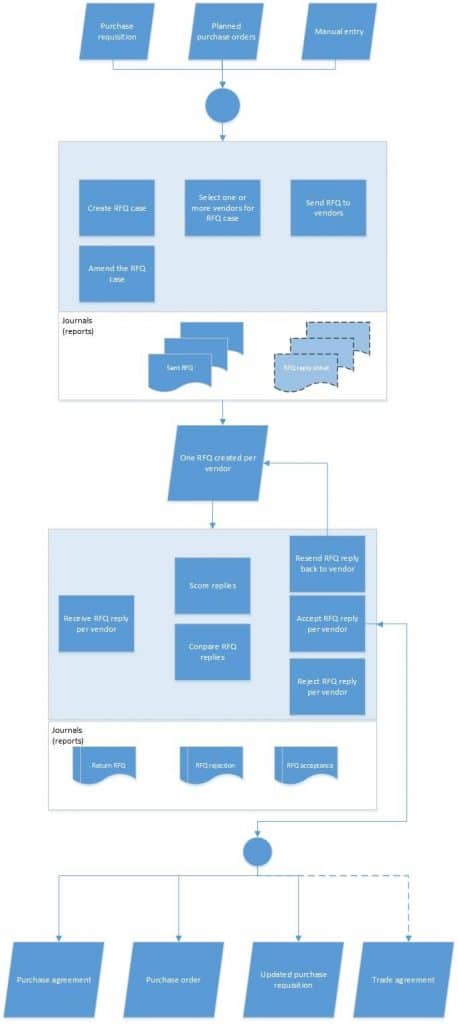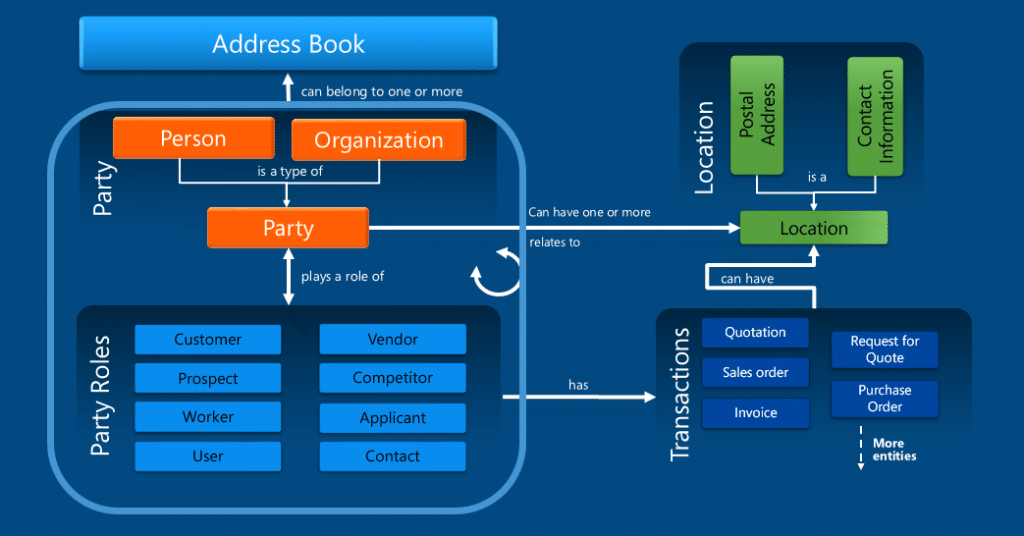
|
|
|
|
#1 |
|
Участник
|
stoneridgesoftware: Top Seven New Features in Dynamics 365 Finance and Operations
Источник: https://stoneridgesoftware.com/top-s...nd-operations/
============== Within Dynamics 365 Finance and Operations there are a variety of new features and functionality that were not available in Microsoft Dynamics AX. Microsoft is dedicated to ensuring Finance and Operations is the most robust, fully functional ERP system on the market and is showcasing that with each product update. Below are seven of the most useful new features in Dynamics 365 Finance and Operations: 1. Mobile Project Timesheets Timesheet functionality finally comes to mobile devices. Now, your employees can manage their project timesheets on their mobile device, no matter if they’re on a project site, at home, or on vacation. Once submitted, those timesheets can also be approved by managers on a mobile device or computer. The time spent completing timesheets will also be reduced thanks to the ability to copy from previous time sheets, identifying favorite project codes, and copying from employee’s assigned projects. Not only does this speed up time entry, but also reduces mistakes that could be caused when manually entering each project line and time. Comments can also be attached to each project to communicate internally, or can be automatically attached to invoices to communicate project details with the customer. 2. Request for Quotation (RFQs) Many corporations are either required to, or prefer to, issue RFQs when searching for a new vendor to provide items or services. Finance and Operations streamlines the RFQ process and allows users to:
 3. Product Catalogs 3. Product CatalogsDynamics 365 Finance and Operations gives the purchasing team the ability to import items and services available to employees directly from vendor catalogs. Employees can then request or order items and services directly from the internal procurement catalog. 4. Global Address Book The Global Address Book is essentially a one-stop shop for all information on internal and external people and organizations that do business or interact with the company. Party role examples include customer, prospect, worker, user, vendor, competitor, applicant, and contact. Contacts and organizations can be associated with multiple party roles. For example, a company could be both a customer and a vendor.  The above image is a graphical representation of the ways that parties, party roles, locations, and transactions interact in relation to the global address book. When any change is made to a party record, all associated records are automatically updated, ensuring each department across your organization has the most up-to-date, accurate information. The above image is a graphical representation of the ways that parties, party roles, locations, and transactions interact in relation to the global address book. When any change is made to a party record, all associated records are automatically updated, ensuring each department across your organization has the most up-to-date, accurate information.5. Trade Allowance Management Companies can now manage sales promotion programs and offer retail “pay-for-performance” monetary rewards to customers that achieve volume and behavioral goals. This eliminates the need to manually track or run recurring reports to determine which clients reached the sales milestone to receive the offered promotion. 6. Positive Pay Check fraud is an ongoing issue that can cause headaches for both the bank and your company. With positive pay, or “SafePay”, you can help the bank prevent check fraud by automatically generating an electronic list of checks every time that checks are printed by your organization. That list is sent to the bank and the bank compares the checks received with your list of checks previously submitted. If the check received is on the list, the bank clears it. If not, the bank holds it for review. 7. Transportation Management Transportation management allows you to identify vendor and routing solutions for both inbound and outbound orders – identifying the fastest route, or the least expensive shipping rate. Scenario How Transportation management can helpUse external logistics providers for transportation activities. Use Transportation management for inbound and/or outbound transportation. The company’s own fleet is available for delivery/pickup, and delivery charges are passed on to customers. For the outbound processes, you can use Transportation management to determine the transportation charges and pass them on to customers. However, the carrier invoice reconciliation process isn’t required. The company’s own fleet is available for delivery/pickup, but delivery charges aren’t passed on to customers,because product prices include transportation. A lot of the Transportation management functionality isn’t required. However, you can use Transportation management to determine the transportation rates and adjust the sales price accordingly. Logistics service is provided by another legal entity in the same company. – You can use Transportation management by treating the other legal entity like any other shipping carrier. You can’t automate the economic transactions between legal entities. Therefore, you must handle these transactions manually (for example, by creating a purchase order). – In the legal entity that provides the logistics services, Transportation management can be used to determine transportation rates. If you’re interested in learning more about these features, or are wondering what other new features you can expect in Dynamics 365 Finance and Operations, check out our blog or reach out to us directly. To learn more about upgrading from AX to Finance and Operations, download our upgrade checklist to get a better understanding of where to start. Источник: https://stoneridgesoftware.com/top-s...nd-operations/
__________________
Расскажите о новых и интересных блогах по Microsoft Dynamics, напишите личное сообщение администратору. |
|
|
|
|
| Опции темы | Поиск в этой теме |
| Опции просмотра | |
|